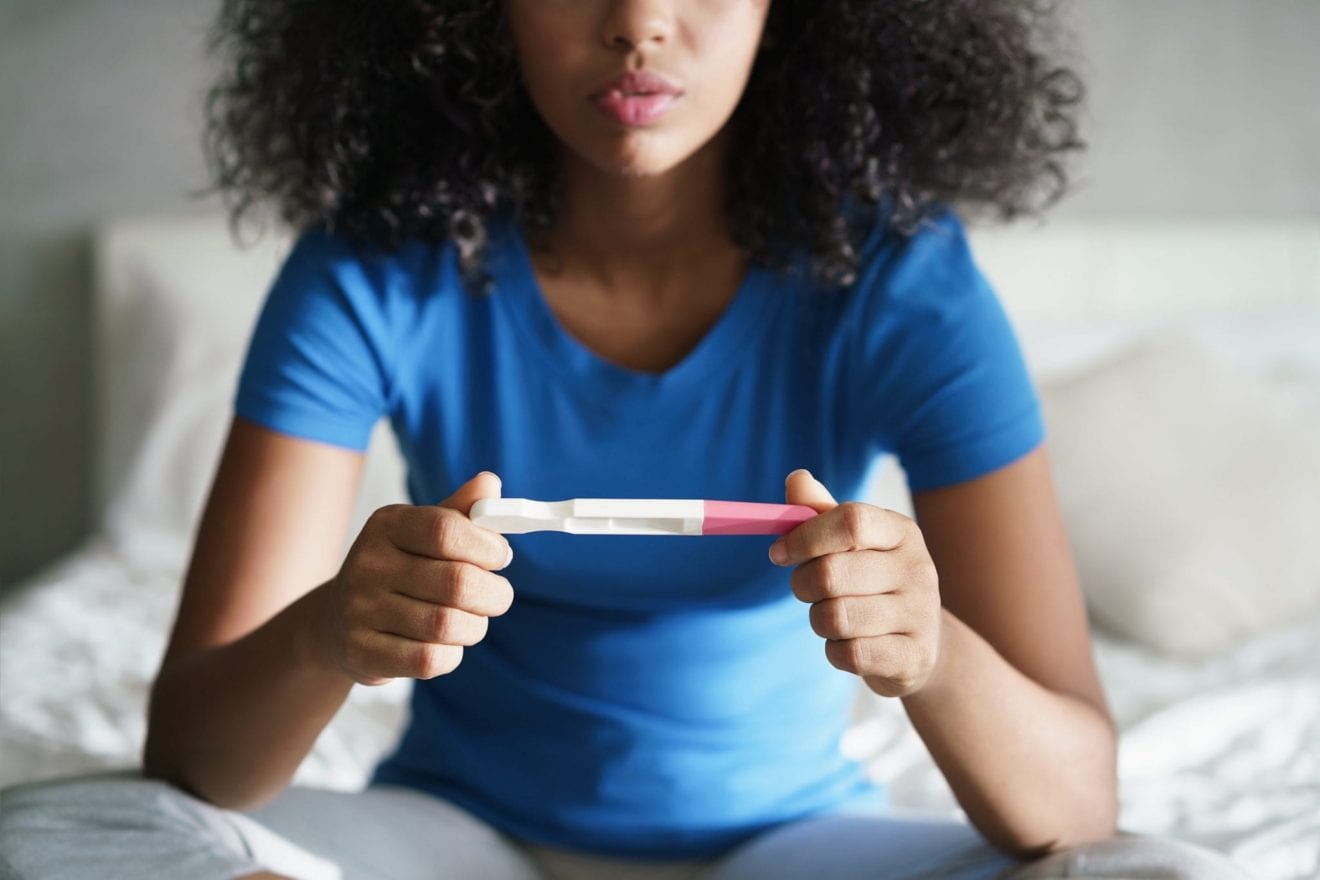Waiting to take a pregnancy test can be unbearable when you’re trying to get pregnant or think you may be pregnant. Many women buy multiple packs of pregnancy tests and start using them as soon as their ovulation cycle ends. But there is one big problem with doing this: false negatives. A negative test, whether false or not, can be highly frustrating when you are working on having a baby, and that added stress will only cause more issues with TTC (trying to conceive) and pregnancy. Let’s look at how pregnancy tests work and explore other ways you can determine when to take a pregnancy test.
How Pregnancy Tests Work
Home pregnancy tests are pretty simple. When pregnant, you produce a hormone called human chorionic gonadotropin (hCG).1 This hormone can be found in your urine early on in pregnancy.5,6 It is the ultimate sign that you are, in fact, pregnant. For some women, their hCG levels spike immediately. But for others, it can take time for the hormone to fully enter the urine and bloodstream.6 Because of this, most tests will tell you to wait until a full week after your missed period. This will ensure you do not get a false positive.2,7
However, with new technology, many tests today promise they can tell you multiple days before your missed period. These tests have a higher sensitivity to detecting the hCG hormone, and they do work — sometimes. Even if you buy one of these tests, most doctors recommend waiting until at least the day after you miss your period since every woman is different, and not every test has the same accuracy for everyone.2,7
Common Early Pregnancy Signs
Use the time between ovulation and a missed period to get in tune with your body. By doing this, you’ll be able to notice some common early pregnancy signs before a test can tell you whether you have conceived. These signs include:2,8
- Swollen breasts that are tender or sensitive to the touch
- Increased fatigue
- Headaches
- Mood swings
- Nausea
- Light spotting (implantation bleeding)
- Cramping
- Constipation
Of course, these symptoms are also signs of menstruation for some people, so it can be hard to pinpoint precisely what is happening with your body.2 Some women may notice some less common signs, like darkened nipples, a metallic taste in their mouth, or sensitivity to smells.2,8 Pay attention to any and all changes you see in your body, mood, and overall well-being.
How To Choose a Pregnancy Test
When you’re ready to take a test, you’ll face one big issue: WHICH test to take. There are so many options! I’ve been there — when I went to get my first box of tests, I felt overwhelmed. Do I need to splurge on the digital test? Should I get a box with two tests, or do I need more than that? Is one brand better than the other? All these are valid questions, but luckily, you can’t really go wrong when choosing a pregnancy test.3
Some women start with the non-digital kind. Once they get a positive result, they confirm it with a digital test. Also, some have had bad experiences with blue-dye tests, leading to evaporation lines (lines that appear a bit after the test is taken, resulting in a false positive). So, one piece of advice is to stick to the pink dye or at least opt for both!4
When To Take a Pregnancy Test
Timing the test is really up to you (and your patience!). When I found out I was pregnant, I had already promised my husband I wouldn’t take a test until after I missed my period. Of course, my nerves got the best of me, and I took it two days early. Luckily, I was already far enough along to have a strong positive on the test. But if I had succumbed to peeing on the stick any earlier, I would have gotten a disappointing false negative. Listen to your body: if you aren’t feeling any symptoms, try to wait it out. If you are sure you are pregnant and waiting one more day may drive you insane, take the test! Just be prepared for any results you may get.
What To Do Next
So, you took the test (at the right time) and have officially found out if you have conceived this month. If you have — congratulations! The first step is to call your doctor or midwife. While most won’t see patients until about the six- to eight-week mark, you should still get an appointment as soon as possible. If you are a high-risk patient or have been on fertility treatments, you will likely see your doctor much sooner to get your blood drawn and ensure your levels are rising as they should. If you are met with a negative test, don’t be discouraged! Look into things you can do differently next time and relax as much as possible — your time will come!
And if you discover you are pregnant and want to keep your pregnancy a secret until your second trimester, here are some helpful tips.













